
Delphi: The Navel of the Ancient World
Nestled on the slopes of Mount Parnassus, Delphi was once considered the center of the world in ancient Greek mythology. As you walk through this historic city, you'll feel the echoes of past civilizations resonating in every stone and pathway. The Oracle of Delphi, where the priestess Pythia delivered prophecies, is one of the most significant archaeological sites you can visit. The ancient ruins, including the Temple of Apollo, the theater, and the stadium, offer a glimpse into a world that was brimming with spirituality and cultural richness. The Delphi Archaeological Museum is a must-see, housing an impressive collection of artifacts uncovered from the site. Marvel at the Charioteer of Delphi, the Sphinx of Naxos, and many other treasures that tell the story of a city that was a hub of wisdom and guidance for ancient Greeks. Take a walk down the Sacred Way, where pilgrims once traveled to seek answers from the gods, and immerse yourself in the same path trodden by historic figures. Beyond the ruins, Delphi offers stunning natural beauty. The surrounding Parnassus National Park is perfect for hiking and exploring. Make sure to visit the Castalian Spring, where it is said the waters were used for purification before consulting the Oracle. The modern town of Delphi provides charming accommodations with breathtaking views of the valley and the Corinthian Gulf. Enjoy local Greek cuisine at quaint tavernas, and savor the tranquility that this ancient city offers.
Local tips in Delphi
- Visit in the early morning or late afternoon to avoid the crowds and the heat.
- Wear comfortable shoes, as the terrain can be uneven and requires a lot of walking.
- Take a guided tour to better understand the historical significance of the ruins.
- Don't miss the Delphi Archaeological Museum for a deeper insight into the artifacts and their stories.
- Stay overnight in the modern town of Delphi to experience a beautiful sunrise over the valley.
- Hike the trails of Mount Parnassus for breathtaking views and a connection with nature.
- Try local specialties like moussaka and baklava at the town's traditional tavernas.
- Bring a reusable water bottle, as the ancient site has limited facilities.
Delphi: The Navel of the Ancient World
Nestled on the slopes of Mount Parnassus, Delphi was once considered the center of the world in ancient Greek mythology. As you walk through this historic city, you'll feel the echoes of past civilizations resonating in every stone and pathway. The Oracle of Delphi, where the priestess Pythia delivered prophecies, is one of the most significant archaeological sites you can visit. The ancient ruins, including the Temple of Apollo, the theater, and the stadium, offer a glimpse into a world that was brimming with spirituality and cultural richness. The Delphi Archaeological Museum is a must-see, housing an impressive collection of artifacts uncovered from the site. Marvel at the Charioteer of Delphi, the Sphinx of Naxos, and many other treasures that tell the story of a city that was a hub of wisdom and guidance for ancient Greeks. Take a walk down the Sacred Way, where pilgrims once traveled to seek answers from the gods, and immerse yourself in the same path trodden by historic figures. Beyond the ruins, Delphi offers stunning natural beauty. The surrounding Parnassus National Park is perfect for hiking and exploring. Make sure to visit the Castalian Spring, where it is said the waters were used for purification before consulting the Oracle. The modern town of Delphi provides charming accommodations with breathtaking views of the valley and the Corinthian Gulf. Enjoy local Greek cuisine at quaint tavernas, and savor the tranquility that this ancient city offers.
When is the best time to go to Delphi?
Iconic landmarks you can’t miss
Delphi Archaeological Museum
Discover ancient treasures and immerse yourself in the history of the Delphic Sanctuary at this world-renowned museum in Delphi, Greece.
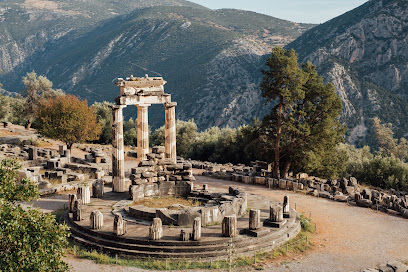
Temple of Apollo
Explore the ruins of the Temple of Apollo in Delphi, the heart of the ancient world, and discover the mysteries of the Oracle.
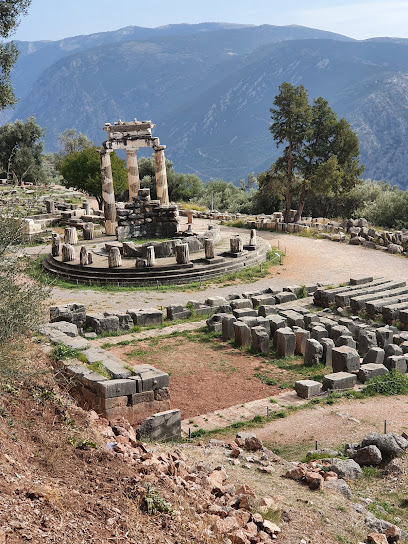
Tholos of Athena Pronaia
Discover the Tholos of Athena Pronaia in Delphi, a mysterious and beautiful ancient Greek temple with stunning architecture and historical significance.
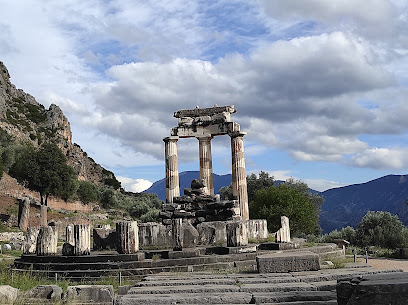
Ancient Stadium of Delphi
Explore the Ancient Stadium of Delphi, a remarkably preserved venue that once hosted the athletic competitions of the Pythian Games.
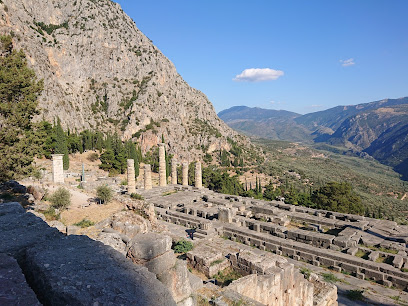
The Ancient Theater of Delphi
Experience the grandeur of ancient Greece at the Theater of Delphi, where history, art, and breathtaking views converge.
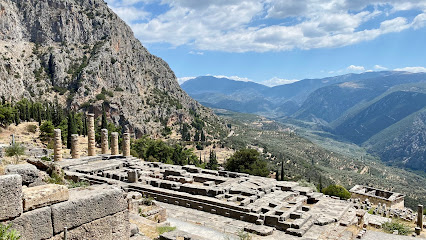
European Cultural Centre of Delphi
Explore the European Cultural Centre of Delphi: Where ancient heritage meets contemporary creativity in a hub of art, culture, and dialogue.
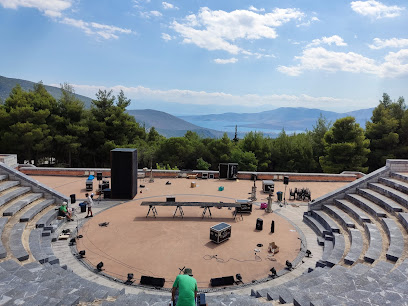
Corycian Cave
Discover the Corycian Cave near Delphi: a mythical sanctuary with ancient history, stunning views, and captivating natural beauty on Mount Parnassus.
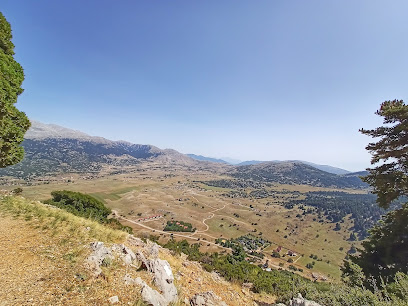
The Athenian Treasury
A stunning Doric temple in Delphi, the Athenian Treasury showcases ancient Athenian power and artistry through its marble structure and intricate friezes.
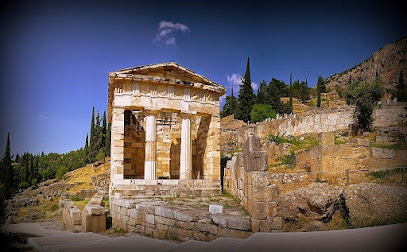
Castalia Spring
Purify your senses at Delphi's Castalia Spring, where ancient pilgrims once sought wisdom and inspiration from the sacred waters.
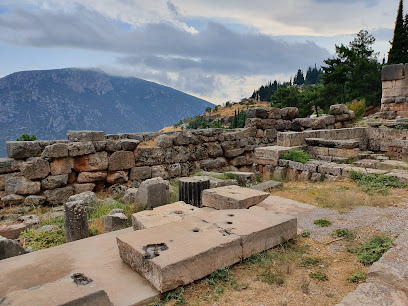
Delphi Archeological Site
Discover Delphi, the ancient Greek sanctuary and home to the famed Oracle, a UNESCO World Heritage site nestled on Mount Parnassus.
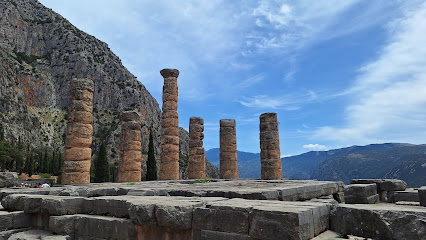
Ancient Gymnasium of Delphi
Explore the ruins of Delphi's Ancient Gymnasium, where athletes trained for the Pythian Games and philosophers shared their wisdom.
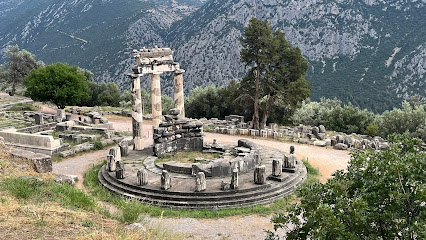
Museum of Delphic Festivals
Explore the Museum of Delphic Festivals in Delphi, Greece, and discover the history of the Delphic Games revival by Angelos and Eva Sikelianos.
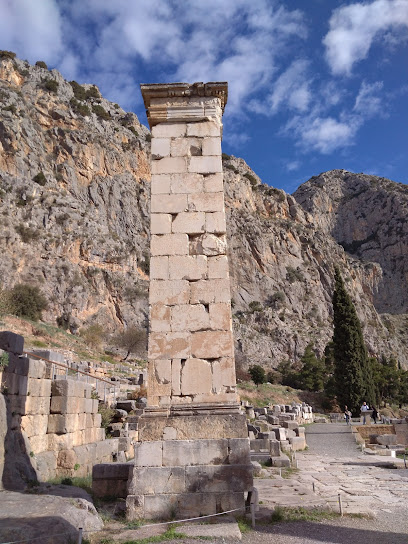
Pillar of Prusias II
Explore the Pillar of Prusias II in Delphi, a historical landmark showcasing ancient Greek architecture and cultural heritage.
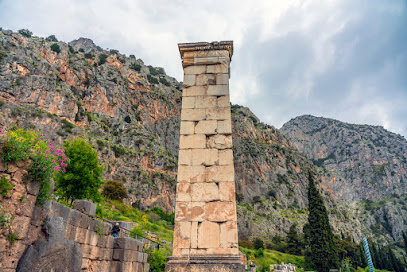
Tripod of the Plataeans
Witness the replica of the monument that once symbolized Greek victory over the Persians at the sacred site of Delphi.
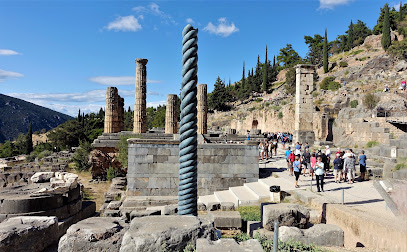
Γλυπτό Ομφαλός της Γης
Discover the Omphalos of Delphi, the 'navel of the world,' and explore the captivating mythology of this ancient Greek landmark.
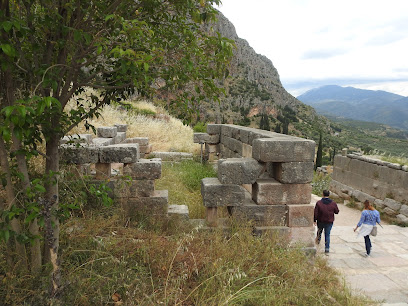
Unmissable attractions to see
Delphi Archaeological Museum
Discover the rich heritage of Greece at the Delphi Archaeological Museum, home to ancient artifacts and timeless treasures from the past.
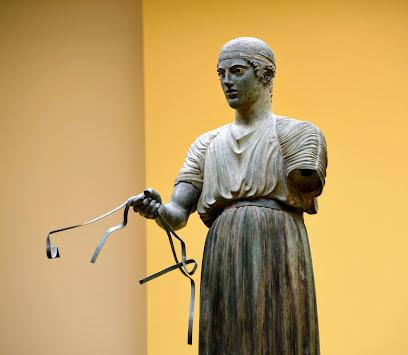
Krya Park
Discover the tranquility of Krya Park in Livadia, a beautiful green space perfect for relaxation and outdoor activities.
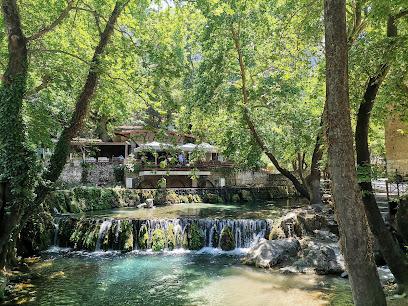
Temple of Apollo
Discover the Temple of Apollo in Delphi, where ancient history meets breathtaking landscapes, immersing you in the legacy of Greek culture.
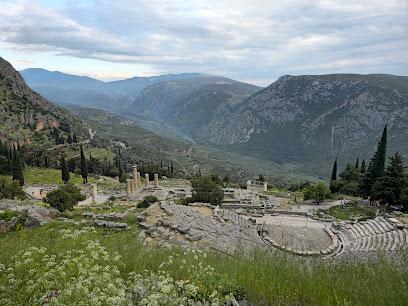
Pavliani Recreation Park
Experience the serene beauty and outdoor adventures of Pavliani Recreation Park, a tranquil haven in the heart of Greece.
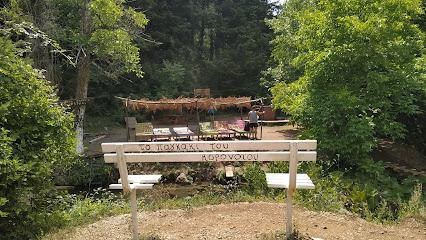
Holy Monastery of Hosios Loukas
Explore the Holy Monastery of Hosios Loukas, a UNESCO heritage site, where Byzantine architecture and spiritual serenity merge in the heart of Greece.

Parnassos Ski Centre
Experience the thrill of winter sports at Parnassos Ski Centre in Arachova, Greece, where breathtaking slopes meet stunning mountain views.
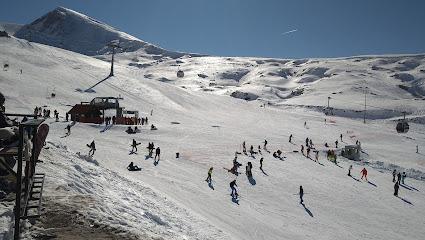
Tholos of Athena Pronaia
Discover the Tholos of Athena Pronaia in Delphi, a breathtaking historical landmark reflecting the glory of ancient Greek architecture and spirituality.
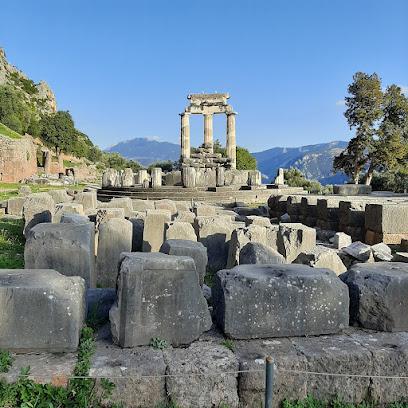
Ancient Stadium of Delphi
Explore the Ancient Stadium of Delphi, a historical landmark steeped in the rich culture and heritage of Greece, surrounded by stunning landscapes.
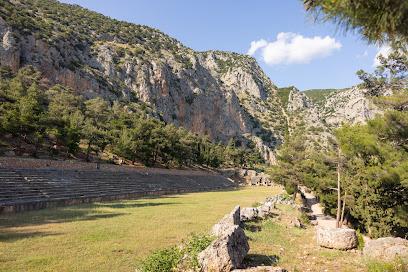
Kavos beach
Explore Kavos Beach in Lichada, Greece, where crystal-clear waters meet golden sands for the ultimate beach experience.
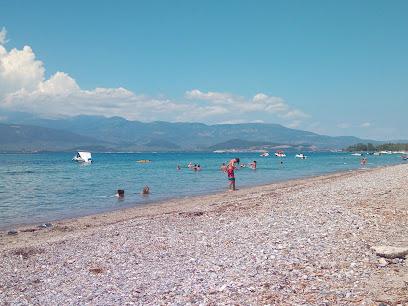
Historical Information Center for Thermopylae
Uncover the rich history of the Battle of Thermopylae at the Historical Information Center, a must-see museum in Lamia, Greece.
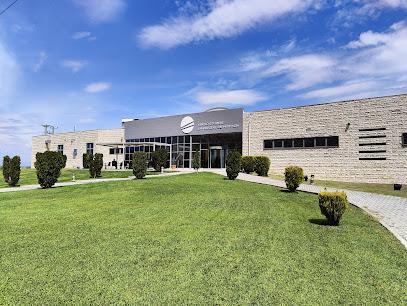
Corycian Cave
Discover the enchanting Corycian Cave in Delphi, a mythical site with stunning geological formations and rich history of ancient Greece.
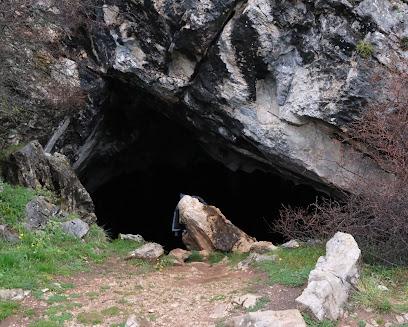
The Athenian Treasury
Explore the Athenian Treasury in Delphi, a stunning historical landmark showcasing the grandeur of ancient Greek architecture and culture.
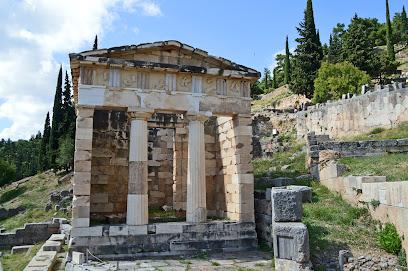
Castalia Spring
Experience the tranquility and historical significance of Castalia Spring, a sacred site in Delphi, Greece, known for its divine waters and natural beauty.
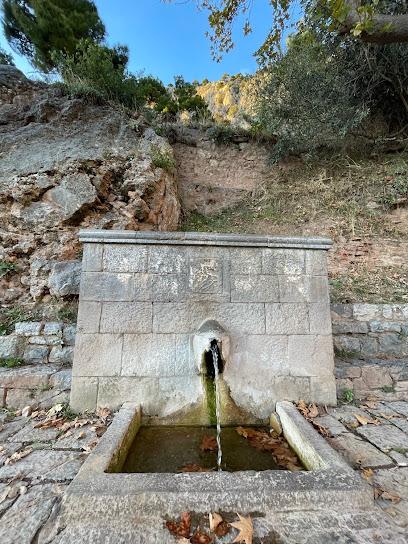
Iron Throne
Discover the thrill of imagination and adventure at the Iron Throne theme park in Pavliani, a magical destination for tourists of all ages.
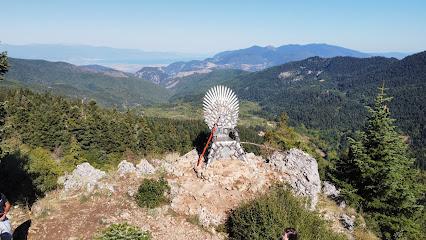
MoKa honey Stories tour
Discover the enchanting world of honey at MoKa Honey Stories in Itea, Greece, where tradition and flavor combine for an unforgettable experience.
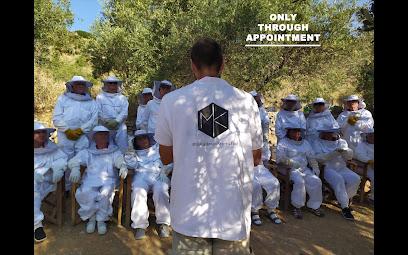
Essential places to dine
Taverna Vakhos
Discover Taverna Vakhos in Delphi – where authentic Greek cuisine meets breathtaking views and warm hospitality.
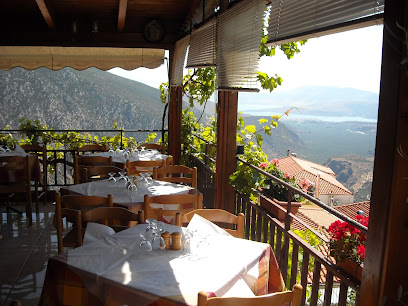
Tavern DION
Experience authentic Greek cuisine at Tavern DION in Delphi - where tradition meets breathtaking views.
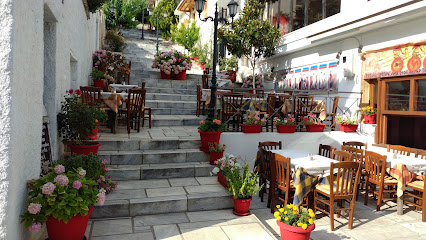
Phterolakka
Experience authentic Greek cuisine at Phterolakka in Arachova—where tradition meets breathtaking mountain views.
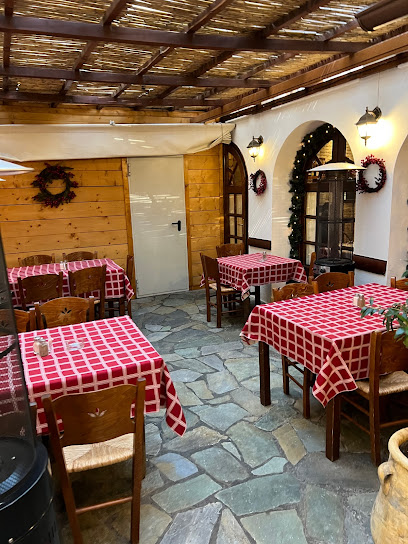
THE AGNANTIO - TAVERN - ARACHOVA
Savor authentic Greek flavors at The Agnantio Tavern in Arachova - where tradition meets taste amidst breathtaking mountain scenery.
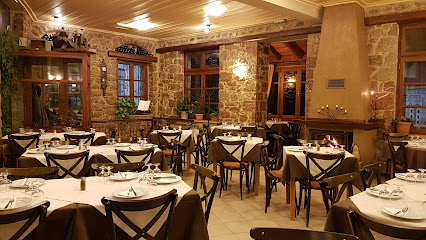
To Archontiko
Experience authentic Greek cuisine at To Archontiko in Arachova - where tradition meets flavor in every dish.
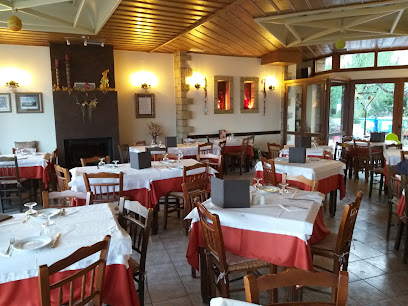
Kaplanis Taverna
Indulge in traditional Greek flavors at Kaplanis Taverna in Arachova - a must-visit for food lovers seeking authentic cuisine.
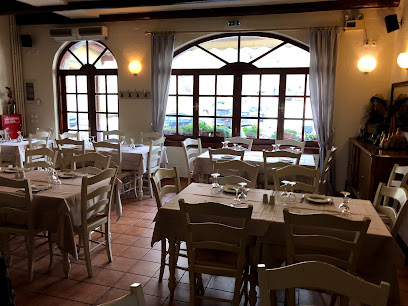
OMFALOS
Discover authentic Greek flavors at Omfalos in Arachova - a perfect blend of tradition and breathtaking mountain views.
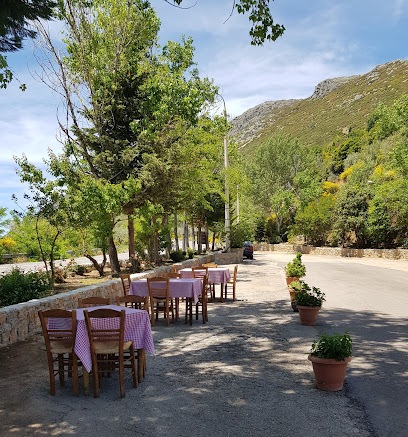
To Tsoukali
Experience authentic Greek flavors at To Tsoukali, Arachova's beloved restaurant known for its fresh ingredients and warm hospitality.
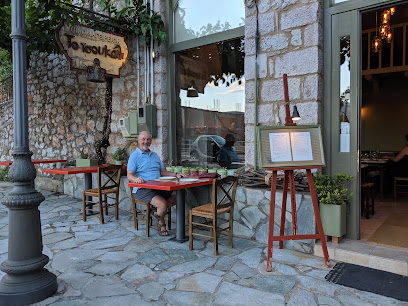
Epikouros Restaurant - Delphi
Experience authentic Greek flavors at Epikouros Restaurant in Delphi, where culinary tradition meets stunning scenery.
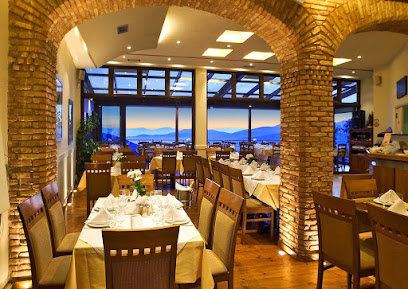
PHIVOS Restaurant - Εστιατόριο ΦΟΙΒΟΣ
Experience authentic Greek cuisine at PHIVOS Restaurant in Delphi - a hidden gem offering stunning views and exceptional flavors.
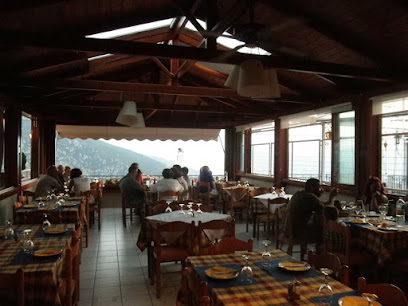
Taverna Christos
Experience authentic Greek flavors at Taverna Christos in Arachova, where tradition meets stunning mountain views.
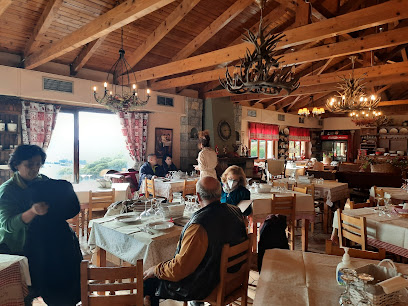
Skeletóbrachos
Discover the flavors of Greece at Skeletóbrachos - where fresh seafood meets authentic Greek hospitality in stunning Galaxidi.
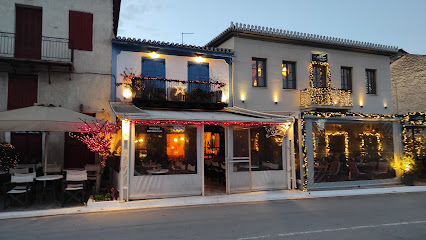
Tavern THE DOLPHINS
Discover authentic Greek cuisine at Tavern THE DOLPHINS in Antikyra – where every meal is paired with stunning sea views.
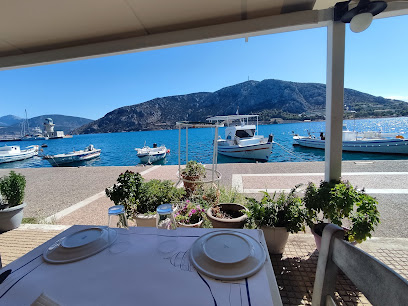
In Delphi Restaurant
Experience the essence of Greece with authentic dishes at In Delphi Restaurant, where every meal is a celebration of tradition and flavor.
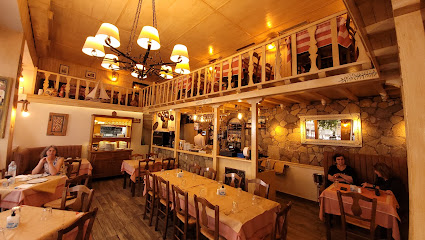
Villa Symposium Restaurant
Experience authentic Greek cuisine amidst breathtaking views at Villa Symposium Restaurant in Delphi.
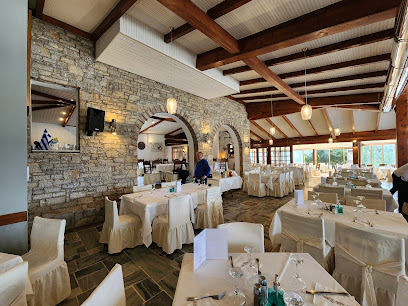
Markets, malls and hidden boutiques
Delphi Museum Shop
Discover unique souvenirs and artifacts at the Delphi Museum Shop, capturing the spirit of ancient Greece in every purchase.
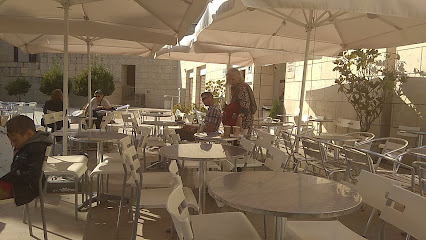
Super Market Alex
Discover the local flavors and vibrant culture at Super Market Alex in Delphi, a must-visit grocery store for culinary enthusiasts.

Amphora Ceramics Gift Shop #8
Explore exquisite handcrafted ceramics at Amphora Ceramics Gift Shop in Delphi, a must-visit destination for unique Greek souvenirs.
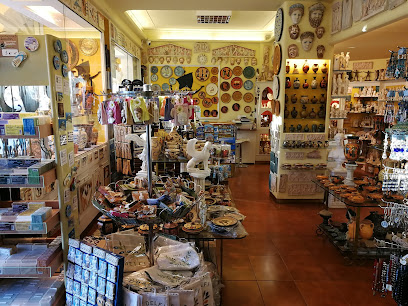
Poseidon Workshop
Discover exquisite handmade jewelry and unique souvenirs at Poseidon Workshop, a gem in the heart of Delphi, Greece.
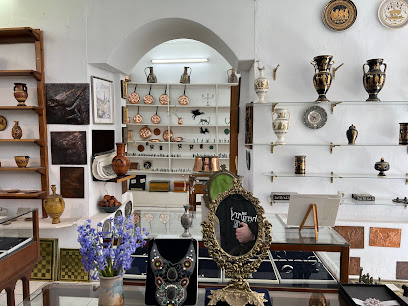
Meandros Souvenir Shop
Discover the charm of Meandros Souvenir Shop in Delphi, your go-to place for unique gifts and local crafts that capture the essence of Greece.
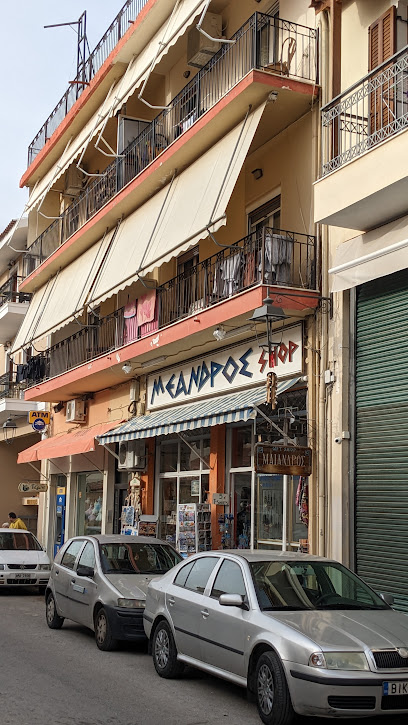
KOUROS
Explore KOUROS in Delphi for unique home goods that reflect Greek artistry and culture, perfect for tourists seeking memorable souvenirs.
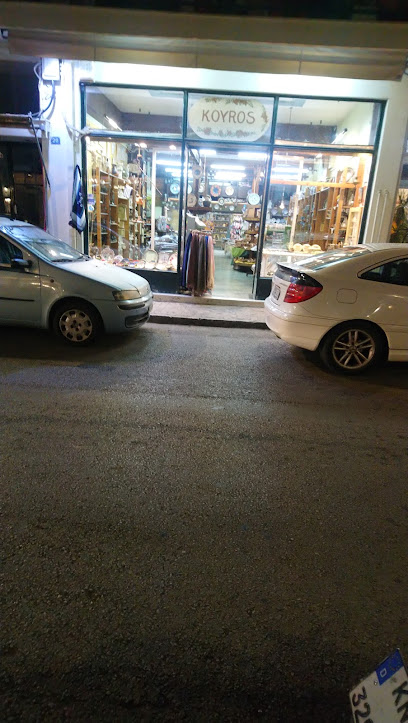
Michailou
Discover unique souvenirs and local crafts at Michailou, the charming souvenir store in Delphi, Greece, perfect for capturing memories of your journey.
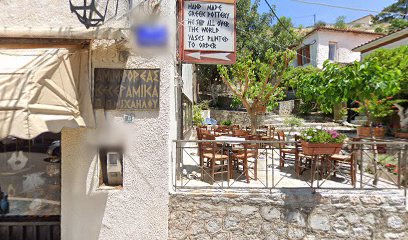
DIONYSOS JEWELRY
Discover unique handcrafted jewelry inspired by the rich heritage of Delphi at Dionysos Jewelry.
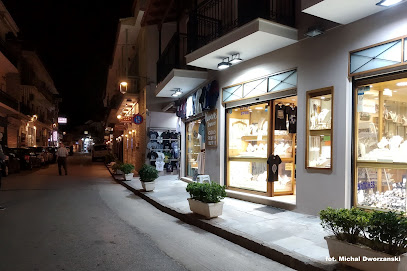
Gifts cards
Discover unique souvenirs and local crafts at the enchanting gift shop in Fournas, a perfect stop for every traveler seeking memorable keepsakes.

Greek Spirit
Discover unique Greek-inspired clothing at Greek Spirit in Delphi, where culture meets style in a charming shopping experience.
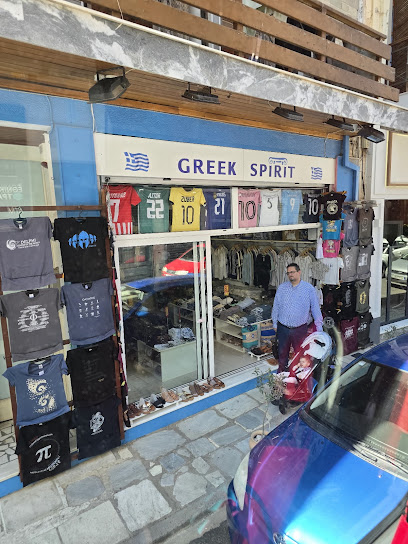
Zapf
Explore Zapf in Delphi for unique clothing that captures the essence of Greek culture and contemporary style.
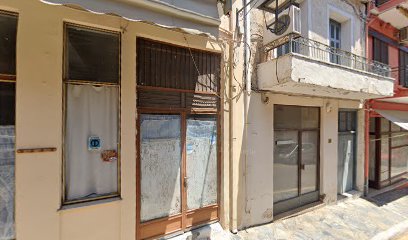
Brands4u
Explore unique fashion finds at Brands4u, a charming clothing store in the heart of Delphi, Greece. Enhance your wardrobe with local styles!
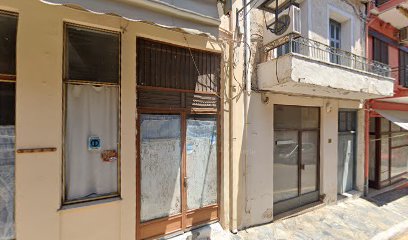
Zaleynthos
Explore Zaleynthos in Fournas – a charming store filled with unique local crafts, artisanal goods, and a taste of authentic Greek culture.

Polis de atenea
Explore the captivating beauty and rich heritage of Polis de atenea, a stunning statuary in the heart of Fournas, Greece.

Lidi
Discover the essence of Fournas at Lidi, a charming store offering unique local products and a taste of Greek culture.

Essential bars & hidden hideouts
Taverna Vakhos
Experience authentic Greek cuisine in the heart of Delphi at Taverna Vakhos, a culinary treasure with stunning views and warm hospitality.
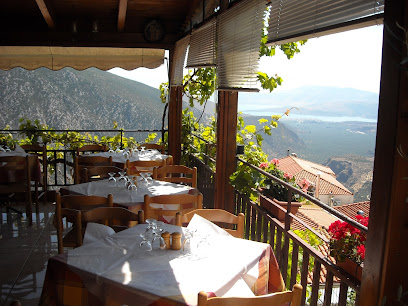
Tavern DION
Discover the flavors of Delphi at Tavern DION, where authentic Greek cuisine meets stunning views and warm hospitality.
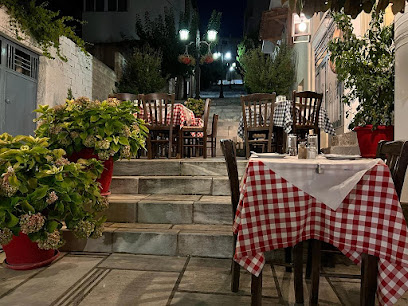
Epikouros Restaurant - Delphi
Experience authentic Greek cuisine with breathtaking views at Epikouros Restaurant in Delphi, where every meal is a taste of tradition.
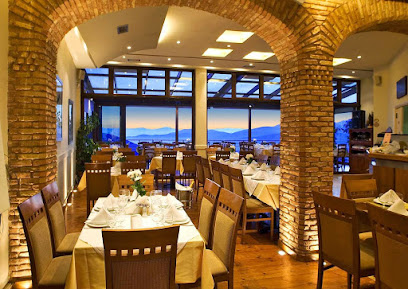
PHIVOS Restaurant - Εστιατόριο ΦΟΙΒΟΣ
Experience authentic Greek cuisine at PHIVOS Restaurant in Delphi, where fresh ingredients and traditional flavors come together in a cozy atmosphere.
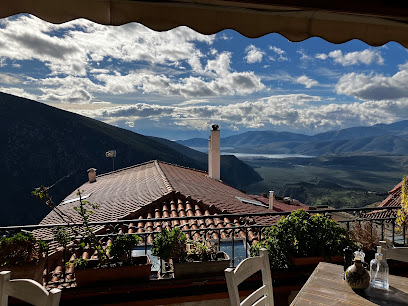
In Delphi Restaurant
Experience authentic Greek cuisine while enjoying breathtaking views in the heart of historic Delphi.
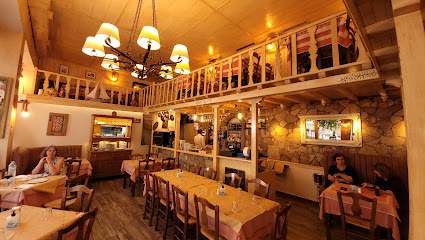
Villa Symposium Restaurant
Experience authentic Greek cuisine at Villa Symposium Restaurant in Delphi, where tradition meets stunning views and warm hospitality.
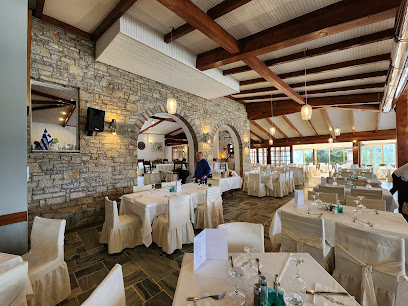
Agora Cafe
Discover Agora Cafe in Delphi for delicious coffee, mouth-watering pizza, and breathtaking views, a perfect blend of relaxation and local flavors.
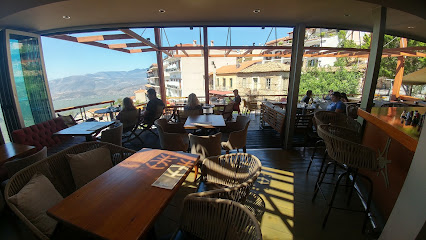
Melopoleio
Experience the best of Delphi at Melopoleio, where delightful coffee meets exquisite cocktails in a stunning setting.
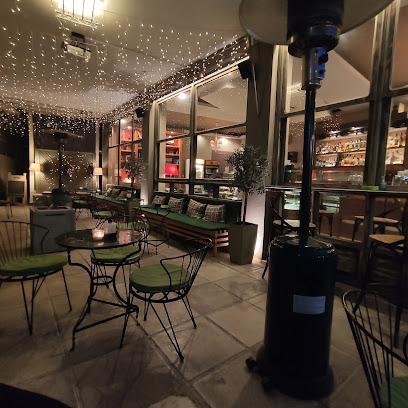
Taverna Gargadoyas
Experience authentic Greek cuisine in the heart of Delphi at Taverna Gargadoyas, where every meal is a taste of tradition.
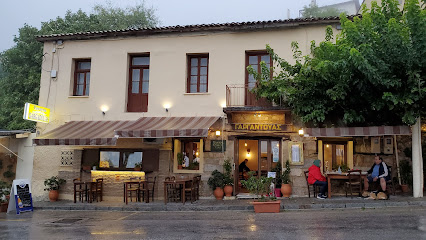
Taberna Ta Skalakia
Experience authentic Greek flavors in the heart of Delphi at Taberna Ta Skalakia, where tradition meets culinary excellence.
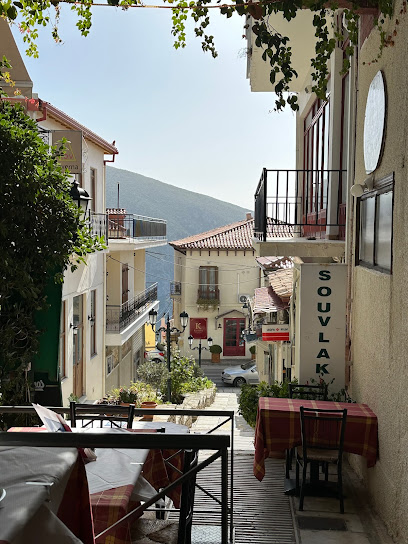
Mr.Rose Cocktail Bar
Discover the exquisite cocktails and vibrant atmosphere at Mr. Rose Cocktail Bar in Delphi, a must-visit for every traveler.

Astra Cafe Restaurant
Experience authentic Greek cuisine at Astra Cafe Restaurant, a culinary treasure in Delphi offering delicious dishes and a welcoming atmosphere.
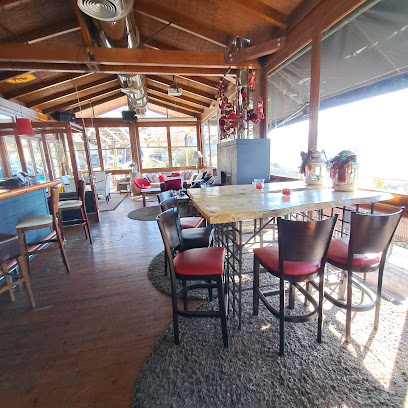
Delphikón
Experience the finest of Greek cuisine at Delphikón, where tradition meets flavor in the heart of historic Delphi.
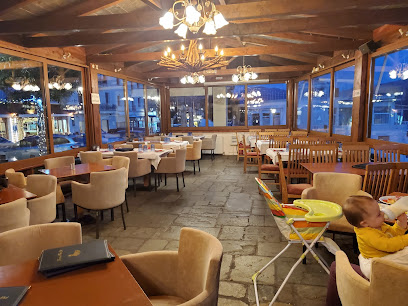
Elia Restaurant Delphi
Experience authentic Greek flavors at Elia Restaurant in Delphi, where tradition meets culinary excellence in a stunning setting.
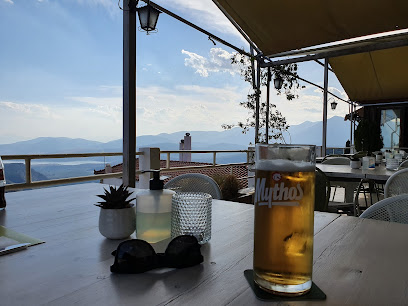
Travel experiences inspired by this city
Explore more travel diariesLocal Phrases
-
- HelloΓεια σας
[Ya sas] - GoodbyeΑντίο
[Adio] - YesΝαι
[Ne] - NoΌχι
[Ohi] - Please/You're welcomeΠαρακαλώ
[Parakalo] - Thank youΕυχαριστώ
[Efharisto] - Excuse me/SorryΣυγγνώμη
[Signomi] - How are you?Τι κάνετε;
[Ti kanete?] - Fine. And you?Καλά. Εσείς;
[Kala. Esis?] - Do you speak English?Μιλάτε αγγλικά;
[Milate anglika?] - I don't understandΔεν καταλαβαίνω
[Den katalaveno]
- HelloΓεια σας
-
- I'd like to see the menu, pleaseΘα ήθελα να δω το μενού, παρακαλώ
[Tha ithela na do to menu, parakalo] - I don't eat meatΔεν τρώω κρέας
[Den troo kreas] - Cheers!Υγεία!
[Ygeia!] - I would like to pay, pleaseΘα ήθελα να πληρώσω, παρακαλώ
[Tha ithela na plirosso, parakalo]
- I'd like to see the menu, pleaseΘα ήθελα να δω το μενού, παρακαλώ
-
- Help!Βοήθεια!
[Voithia!] - Go away!Πήγαινε μακριά!
[Pigaine makria!] - Call the Police!Καλέστε την Αστυνομία!
[Kaleste tin Astynomia!] - Call a doctor!Καλέστε ένα γιατρό!
[Kaleste ena giatro!] - I'm lostΈχω χαθεί
[Eho hathi] - I'm illΕίμαι άρρωστος
[Eimai arrostos]
- Help!Βοήθεια!
-
- I'd like to buy...Θα ήθελα να αγοράσω...
[Tha ithela na agoraso...] - I'm just lookingΑπλά κοιτάω
[Apla kitao] - How much is it?Πόσο κοστίζει;
[Poso kostizi?] - That's too expensiveΑυτό είναι πολύ ακριβό
[Afto ine poli akribo] - Can you lower the price?Μπορείτε να μειώσετε την τιμή;
[Borite na meiosete tin timi?]
- I'd like to buy...Θα ήθελα να αγοράσω...
-
- What time is it?Τι ώρα είναι;
[Ti ora ine?] - It's one o'clockΕίναι μία ώρα
[Ine mia ora] - Half past (10)Η μισή (10)
[I misi (10)] - MorningΠρωί
[Proi] - AfternoonΑπόγευμα
[Apoyevma] - EveningΒράδυ
[Vradi] - YesterdayΧθες
[Hthes] - TodayΣήμερα
[Simera] - TomorrowΑύριο
[Avrio] - 1Ένα
[Ena] - 2Δύο
[Dio] - 3Τρία
[Tria] - 4Τέσσερα
[Tessera] - 5Πέντε
[Pente] - 6Έξι
[Exi] - 7Επτά
[Epta] - 8Οκτώ
[Okto] - 9Εννιά
[Ennia] - 10Δέκα
[Deka]
- What time is it?Τι ώρα είναι;
-
- Where's a/the...?Πού είναι ένας/μια/το...;
[Pou ine enas/mia/to...?] - What's the address?Ποια είναι η διεύθυνση;
[Pia ine i diefthinsi?] - Can you show me (on the map)?Μπορείτε να μου δείξετε (στο χάρτη);
[Borite na mou dixete (sto charti)?] - When's the next (bus)?Πότε είναι το επόμενο (λεωφορείο);
[Pote ine to epomeno (leoforeio)?] - A ticket (to ....)Ένα εισιτήριο (για το....);
[Ena isitirio (gia to....)?]
- Where's a/the...?Πού είναι ένας/μια/το...;
History of Delphi
-
Delphi, located on the slopes of Mount Parnassus, was once considered the center of the world in ancient Greek mythology. According to legend, Zeus released two eagles from opposite ends of the world, and they met at Delphi, designating it as the navel of the Earth. The area was originally settled in the Mycenaean period (1600-1100 BC) and later became a significant religious and cultural center.
-
One of the most famous aspects of Delphi is its oracle, known as the Pythia. The Pythia was a high priestess who served as the mouthpiece of the god Apollo. Individuals from all over the ancient world, from commoners to kings, traveled to Delphi to seek her prophecies. The oracle's pronouncements were often cryptic and interpreted by priests, influencing major decisions throughout the ancient Greek world.
-
In addition to its religious significance, Delphi was also known for the Pythian Games, held every four years in honor of Apollo. These games were second only to the Olympics in prestige and included musical, literary, and athletic competitions. Participants from across the Greek world came to compete, showcasing their talents and strengthening cultural ties.
-
The heart of Delphi is the Sanctuary of Apollo, a complex of buildings, including the famous Temple of Apollo. This temple housed the omphalos stone, which symbolized the center of the world. The sanctuary also contained treasuries, where various city-states stored valuable offerings, and the sacred way, a path lined with statues and monuments leading to the temple.
-
One of the most notable structures within the Sanctuary of Apollo is the Treasury of the Athenians. Built around 490 BC, it was constructed to commemorate the Athenian victory at the Battle of Marathon. The treasury was filled with offerings to Apollo, symbolizing the city's gratitude and piety.
-
The Delphic Maxims are a set of moral precepts that were inscribed at the Temple of Apollo. These maxims, such as 'Know thyself' and 'Nothing in excess,' were considered fundamental principles for leading a virtuous life. They reflect the philosophical and ethical teachings that were integral to the culture of Delphi.
-
Throughout its history, Delphi faced several invasions and sacking attempts. One of the most significant occurred in 279 BC when a coalition of Greek tribes successfully defended the sanctuary against a Gallic invasion. This event reinforced Delphi's reputation as a sacred and protected place.
-
Delphi came under Roman control in the 2nd century BC, yet its religious significance remained intact. The Romans were keen to preserve and even enhance the site. Emperors such as Hadrian and Nero visited Delphi, and several restoration projects were undertaken to maintain its grandeur.
-
The rise of Christianity in the late Roman Empire marked the beginning of Delphi's decline. The oracle's influence waned, and many of the temples and buildings fell into disrepair. By the 4th century AD, the Christian emperor Theodosius I ordered the closure of pagan temples, including those at Delphi, signaling the end of its ancient religious role.
-
Rediscovered in the 19th century, Delphi has since become a major archaeological site and tourist destination. Excavations have unearthed significant artifacts, shedding light on its ancient past. Today, visitors can explore the ruins, including the Temple of Apollo, the theater, and the stadium, gaining a deeper understanding of its historical and cultural legacy.
Delphi Essentials
-
Delphi is located on the slopes of Mount Parnassus in central Greece. The nearest major city is Athens, which has an international airport, Eleftherios Venizelos International Airport (ATH). From Athens, you can take a bus from the KTEL bus station, which takes about 3 hours to reach Delphi. Alternatively, you can rent a car and drive, which also takes around 2.5 to 3 hours via the E75 highway. There are no direct trains to Delphi, but you can take a train to nearby cities like Levadia and then continue by bus or taxi.
-
Delphi is a small town, and most of its attractions are within walking distance. For those who prefer not to walk, local taxis are available. There are also bus services that connect Delphi to surrounding towns and villages. Renting a car can be a good option if you plan to explore the broader region of Phocis. Parking can be limited, especially during peak tourist seasons, so plan accordingly.
-
The official currency in Greece is the Euro (EUR). Credit and debit cards are widely accepted in hotels, restaurants, and shops within Delphi. However, it is advisable to carry some cash, especially for small purchases or in case you visit rural areas where card payment may not be an option. There are ATMs available in Delphi, but it’s a good idea to withdraw sufficient cash in Athens before your trip, just in case.
-
Delphi is generally a safe destination for tourists. However, as with any travel destination, it’s important to take standard precautions. Avoid leaving your belongings unattended and be cautious in crowded areas to prevent pickpocketing. Delphi does not have specific high-crime areas targeting tourists, but it is always wise to stay vigilant and aware of your surroundings, especially at night.
-
In case of an emergency, dial 112 for immediate assistance, which is the European Union emergency number. Delphi has a local police station and medical facilities, including a small health center. It’s recommended to have travel insurance that covers medical emergencies. For minor health issues, there are pharmacies in the town where you can purchase over-the-counter medications.
-
Fashion: Do wear comfortable clothing and shoes as you will be doing a lot of walking, especially in archaeological sites. Avoid overly casual attire when dining in more formal restaurants. Religion: Do show respect when visiting religious sites, such as churches and monasteries. Wear modest clothing and avoid loud behavior. Public Transport: Do be respectful on public transport. Avoid eating or drinking, and give up your seat to elderly passengers. Greetings: Do greet people with a polite 'Kalimera' (Good Morning) or 'Kalispera' (Good Evening). A handshake is usually appropriate. Eating & Drinking: Do try local dishes and wines. Don't leave a tip on the table; instead, hand it directly to the service staff.
-
To experience Delphi like a local, visit the town early in the morning before the tourist crowds arrive. Engage with local shop owners and artisans; they are often friendly and willing to share stories about the area's rich history. Don't miss the chance to hike the trails on Mount Parnassus for breathtaking views. For a unique gastronomic experience, try the locally produced olive oil and honey. Visit during local festivals to enjoy traditional music, dance, and food.
Trending Landmark in Delphi
-
Delphi Archaeological Museum
-
Temple of Apollo
-
Tholos of Athena Pronaia
-
Ancient Stadium of Delphi
-
The Ancient Theater of Delphi
-
European Cultural Centre of Delphi
-
Corycian Cave
-
The Athenian Treasury
-
Castalia Spring
-
Delphi Archeological Site
-
Ancient Gymnasium of Delphi
-
Museum of Delphic Festivals
-
Pillar of Prusias II
-
Tripod of the Plataeans
-
Γλυπτό Ομφαλός της Γης
Nearby Cities to Delphi
-
Things To Do in Lamia
-
Things To Do in Patras
-
Things To Do in Nafplio
-
Things To Do in Volos
-
Things To Do in Olympia
-
Things To Do in Athens
-
Things To Do in Larissa
-
Things To Do in Meteora
-
Things To Do in Zakynthos
-
Things To Do in Kalamata
-
Things To Do in Ioannina
-
Things To Do in Katerini
-
Things To Do in Thessaloniki
-
Things To Do in Corfu
-
Things To Do in Saranda

























